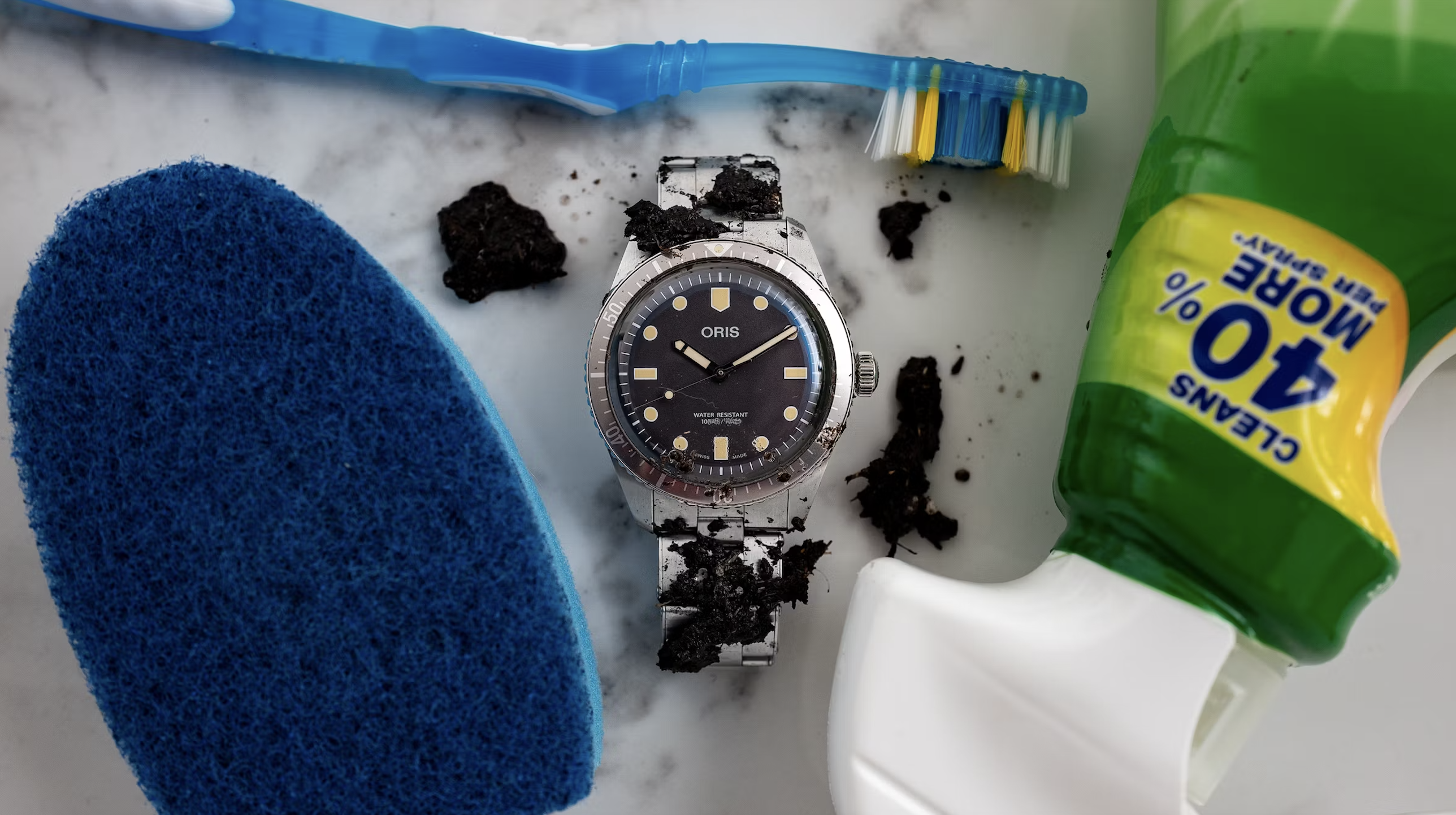
cleaning watches in this dirty world
A wristwatch is not just a simple tool for tracking time, it also symbolizes a person’s taste, identity, and judgement. This precious item requires regular care and maintenance in order to keep its glamour and functionality. Through this comprehensive guide, we will delve into safe and effective methods to clean your cherished timepiece. So, let’s get ready to make sure that your elegant watch continues to shine just as brightly as it did when you first fell in love with it.
Cleaning Watches ; Safety First!
Bear in mind that not every cleaning method is suitable for each watch. It’s crucial to clean your watch correctly, calling for precision, patience, and the right equipment, especially when it comes to luxury or vintage timepieces. We’re ready to guide you through the safe and proper cleaning process that won’t threaten your watch’s intricate mechanisms.
- Understanding the array of watch types and their unique cleaning requirements.
- Identifying the safest cleaning substances to use.
- Learning which materials to strictly avoid while cleaning.
So, equip yourself for a surge in watch-related wisdom as we delve into these crucial factors that will help you keep your watch in tip-top shape.
Can I clean my watch with water?
The response to whether you can clean your watch with water isn’t a straightforward yes or no. It primarily hinges on your watch’s kind and its water resistance capacity. Allow us to delve into this matter more meticulously:
Water Resistance Ratings & Your Watch
It’s vital to grasp the details of your watch’s water resistance capacity. Contemporary watches come with diverse water resistance ratings. High-rated ones can endure immersion in water, whereas those with lower rates can withstand only accidental water contact. Usually, this crucial information resides either on the watch’s casing back or in the provided manual.
- 30M/3ATM: Can withstand splashes but not suitable for immersion or showering
- 50M/5ATM: Suitable for short periods of swimming but not diving or snorkeling
- 100M/10ATM: Suitable for swimming and snorkeling, but not scuba diving
- 200M/20ATM: Suitable for high-impact water sports and scuba diving
How To Safely Clean Your Watch With Water
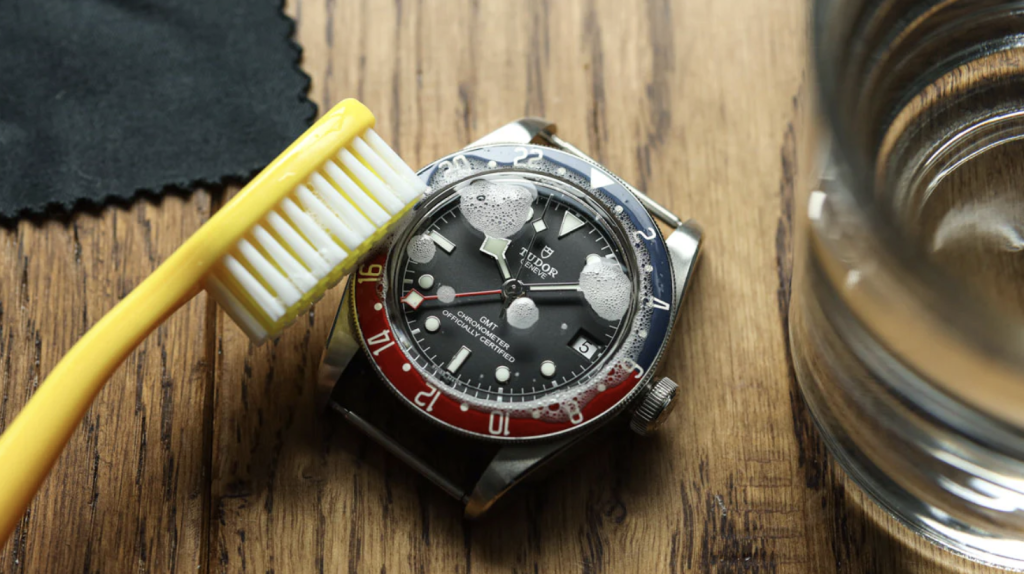
- Remove any leather or fabric straps: These materials can be severely damaged by water. They should be cleaned separately and according to their specific guidelines.
- Use a soft brush: For stubborn dirt or grime, a soft toothbrush will be gentle on your watch while getting the job done. Be mindful to not apply too much pressure.
- Rinse with warm water: After scrubbing, rinse your watch thoroughly but gently under warm running water.
- Gently dry: Pat your watch dry with a soft cloth, then let it air dry completely before reattaching any straps or wearing it again.
In conclusion, though it’s feasible to clean your watch with water, two vital factors deserve your consideration: your watch’s water resistance rating and the temperature of the cleaning water. Adherence to the protocols outlined within this article won’t merely maintain your esteemed timepiece’s pristine gleam, but it will also significantly boost its longevity and durability.
What materials should I avoid when cleaning my watch?
Hot water
Under no circumstances should you clean a watch with hot water, no matter how water-resistant it may be. High temperatures can degrade the gaskets that maintain your watch’s water resistance, making your watch susceptible to damage later on.
Is it safe to use soap or detergent to clean my watch?
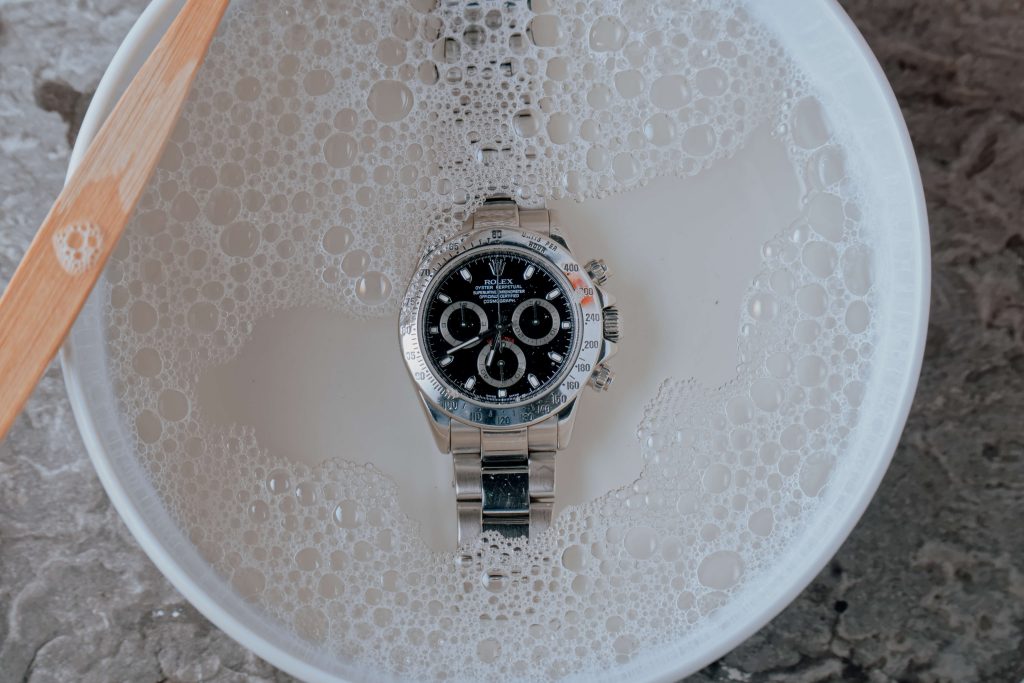
Indeed, you can use soap or a mild detergent to clean your watch, but there’s a catch. While it’s accurate that these cleaning agents can dislodge tough grime, they should be used with care and precision to avoid causing harm to the elements of your watch. Here are some essential guidelines to bear in mind when using soap or detergent in your cleaning procedure:
- Choose a mild soap: Harsh detergents can degrade the structure of your watch, especially if it’s made of softer materials such as gold or silver. A mild dishwashing soap is a good choice.
- Use it minimally: A small amount of soap goes a long way. Moreover, too much soap can leave a grimy residue, which may require further cleaning to remove.
- Rinse thoroughly: It’s crucial to rinse your watch thoroughly after using any soap on it. Soap residues left on the watch can interfere with the functionality of your timepiece and lead to tarnishing of its aesthetic appeal.
- Avoid soaping the watch strap: Watch bands, particularly made of leather or fabric, can become damaged by soaps, leading to premature wear.
If you’re uncomfortable with the idea of using soap on your valuable watch, professional cleaning services are also available. They will use specialized tools and cleaners that are specifically designed for watches.
A Safe Soap Cleaning Method
- Preparing the cleaning mixture: In a bowl, combine lukewarm water with several droplets of a mild dish soap.
- Delicate cleaning process: Immerse your watch in the prepared solution, swirling it lightly. Should there be stubborn dirt and grime, employ the use of a soft brush for the cleaning process.
- The important rinsing step: Using room temperature running water, be sure to thoroughly rinse your watch.
- Drying procedure: Utilize a clean, soft towel to dry your watch meticulously. Make sure to remove any residual water droplets, focusing on any crevices and corners.
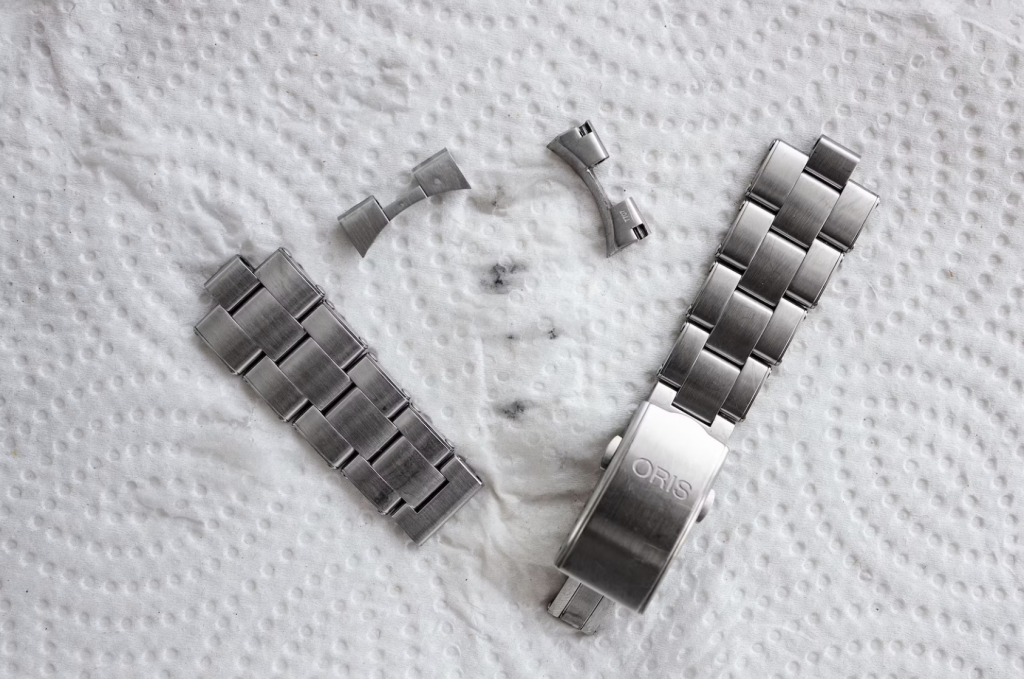
Although the guidelines provided are beneficial, it’s essential to proceed with caution when cleaning your treasured timepiece. If you’re uncertain or your watch has substantial worth, consider soliciting the expertise of a professional for a thorough and safe cleaning experience.
How often should I clean my watch?
Keeping your watch clean is key to preserving its shine and longevity. However, how often you should clean it depends on factors like your watch type, lifestyle, and hygiene practices.
The frequency of your watch cleaning largely depends on your personal hygiene habits. If you’re prone to heavy perspiration, or your occupation involves dealing with dirt or grime, you may need to cleanse your watch more often than usual.
The frequency with which you clean your watch largely depends on its design and the materials used in its construction. Complex, luxurious timepieces generally require more regular cleaning than simpler digital watches. Similarly, the type of material used – be it leather or metal – can also affect how often your watch needs to be cleaned.
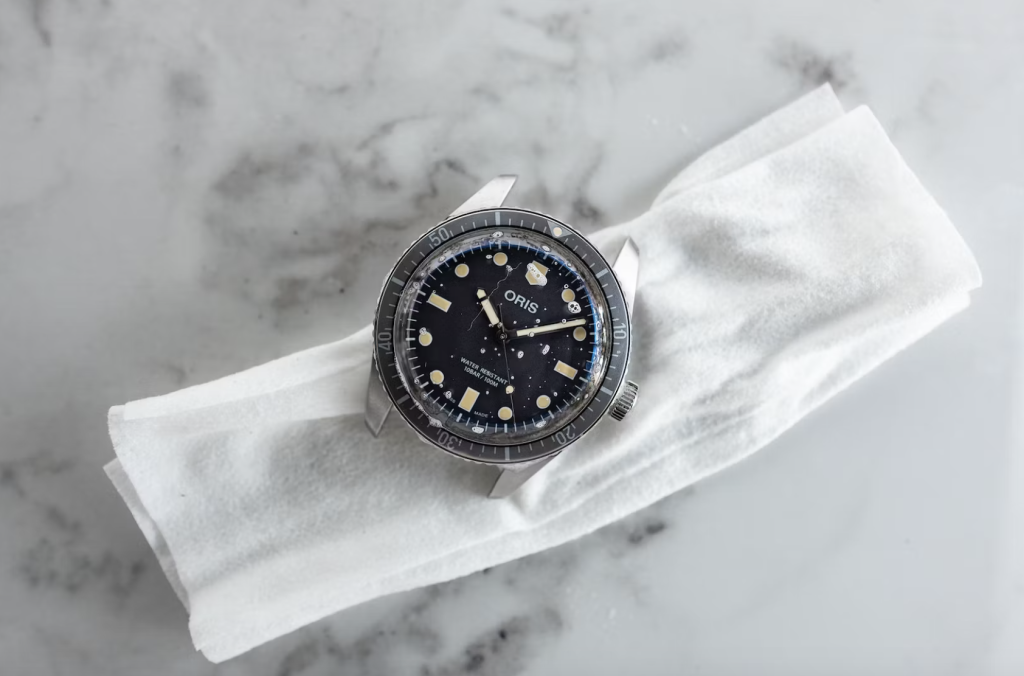
Frequent Cleaning is Key
Even for those who aren’t particularly sweaty, and even when handling a watch of a modest design, it is judicious to conduct a light wipe-down of your timepiece with a soft cloth each evening. This daily habit not only mitigates the day’s build-up of grime and moisture, but it can thwart potential long-standing harm to your watch.


